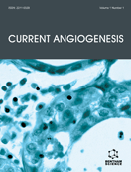Abstract
The creation of functional blood vessel circuits is a critical step during embryonic development to support organ growth and differentiation. In the adult, angiogenesis occurs naturally in the female reproductive system, during exercise- induced muscle growth and in wound healing. However, adult angiogenesis also promotes tumour growth and contributes to many other diseases with tissue ischemia. The transmembrane protein neuropilin 1 (NRP1) is an isoformselective receptor for the most potent vascular growth and permeability factor, VEGF-A. NRP1 also functions as a receptor for an archetypical neural guidance cue called SEMA3A that inhibits tumour angiogenesis. In the adult vasculature, both VEGF-A and SEMA3A increase vascular permeability and thereby promote the formation of tissue oedema. Here, we review current knowledge about NRP1 function during blood vessel growth and vascular pathology.
Keywords: Angiogenesis, VEGF, VEGF-A, SEMA3A, neuropilin, VEGFR2, endothelial cells, Neuropilin Signalling, Vascular Development, Pathology
 10
10

